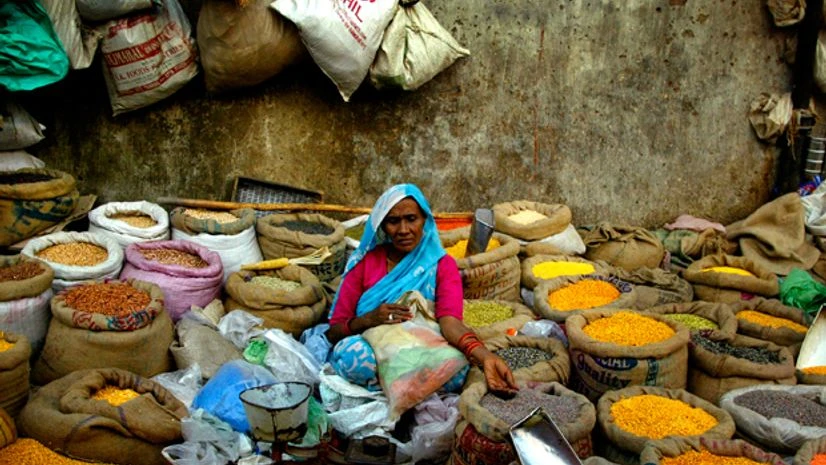Triggered by a sharp decline in output last year, followed by the fear of lower production this kharif season, too, private traders have signed contracts for over a million tonnes of imported pulses, with delivery in three months.
Informed sources said importers are looking for huge quantities of chickpeas, yellow peas, pigeon peas (tur) and black matpe (chana) from Australia, Canada and some other countries. Lower prices in the ongoing harvesting season there and the rupees' slide against the dollar have also prompted importers to fix the price and supply commitment.
The price of pulses, led by tur dal and masoor dal, has risen substantially in a month. At Rs 120 a kg, tur has become costlier by 18 per. Masoor is up 16 per cent to Rs 89 a kg in wholesale markets. In retail markets, tur and masoor are quoted at Rs 140-150 a kg and Rs 110-120 a kg, respectively. Experts believe the prices will remain firm.
Consumption in India has increased steadily over recent years. Barring 2014-15, when importers had to face huge volatility in global prices, Indian importers have avoided building an inventory.
“Importers have contracted for 400,000 tonnes of chickpeas and caspa peas from Australia and 600,000 tonnes of yellow pea import, largely from Canada, Russia and France,” said Pravin Dongre, chairman, India Pulses and Grains Association.
If the trend continues, India would have the highest import of pulses at around five million tonnes this year, about 21 per cent of the consumption, the highest ever.

India’s pulses import is likely to remain up despite higher sowing this kharif season, whence comes a third of the annual output. “While a forecast of crop damage due to deficiency of rainfall is a bit early, another week or two of dry spell would certainly damage standing crops. The metereological department has forecast 12 per cent lower rain this monsoon season of the long term average. It appears this has begun impacting the tur crop in Maharashtra and Karnataka.Informed sources said importers are looking for huge quantities of chickpeas, yellow peas, pigeon peas (tur) and black matpe (chana) from Australia, Canada and some other countries. Lower prices in the ongoing harvesting season there and the rupees' slide against the dollar have also prompted importers to fix the price and supply commitment.
The price of pulses, led by tur dal and masoor dal, has risen substantially in a month. At Rs 120 a kg, tur has become costlier by 18 per. Masoor is up 16 per cent to Rs 89 a kg in wholesale markets. In retail markets, tur and masoor are quoted at Rs 140-150 a kg and Rs 110-120 a kg, respectively. Experts believe the prices will remain firm.
Consumption in India has increased steadily over recent years. Barring 2014-15, when importers had to face huge volatility in global prices, Indian importers have avoided building an inventory.
“Importers have contracted for 400,000 tonnes of chickpeas and caspa peas from Australia and 600,000 tonnes of yellow pea import, largely from Canada, Russia and France,” said Pravin Dongre, chairman, India Pulses and Grains Association.
If the trend continues, India would have the highest import of pulses at around five million tonnes this year, about 21 per cent of the consumption, the highest ever.

The latest estimate, issued on August 17, of the Union agriculture ministry showed pulses output to decline by at least 10 per cent to 17.2 million tonnes in 2014-15.
Unseasonal rain in February–April had damaged the rabi crop.
“There is a huge shortage of tur in India. Importers are therefore bringing in large quantities of tur from African countries, in addition to yellow peas from Ukraine, Russia, Australia and Canada,” said Bimal Kothari, managing director of Pancham International, a pulses importer.
Dongre urged the government to start importing now.

)
